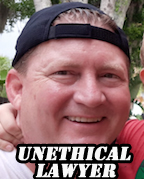RULE 4-1.7 CONFLICT OF INTEREST; CURRENT CLIENTS (a) Representing Adverse Interests. Except as provided in subdivision (b), a lawyer must not represent a client if:
- (1) the representation of 1 client will be directly adverse to another client;
- RULE 4-1.11 SPECIAL CONFLICTS OF INTEREST FOR FORMER AND CURRENT GOVERNMENT OFFICERS AND EMPLOYEES
- (a) Representation of Private Client by Former Public Officer or Employee. A lawyer who has formerly served as a public officer or employee of the government:
- (1) is subject to rule 4-1.9(b) and (c); and
- (2) shall not otherwise represent a client in connection with a matter in which the lawyer participated personally and substantially as a public officer or employee, unless the appropriate government agency gives its informed consent, confirmed in writing, to the representation.
- RULE 4-1.9 CONFLICT OF INTEREST; FORMER CLIENT
- A lawyer who has formerly represented a client in a matter must not afterwards:
- (a) represent another person in the same or a substantially related matter in which that person’s interests are materially adverse to the interests of the former client unless the former client gives informed consent;
- (b) use information relating to the representation to the disadvantage of the former client except as these rules would permit or require with respect to a client or when the information has become generally known; or
- (c) reveal information relating to the representation except as these rules would permit or require with respect to a client.
(a) violate or attempt to violate the Rules of Professional Conduct, knowingly assist or induce another to do so, or do so through the acts of another;
(b) commit a criminal act that reflects adversely on the lawyer’s honesty, trustworthiness, or fitness as a lawyer in other respects;
(c) engage in conduct involving dishonesty, fraud, deceit, or misrepresentation, except that it shall not be professional misconduct for a lawyer for a criminal law enforcement agency or regulatory agency to advise others about or to supervise another in an undercover investigation, unless prohibited by law or rule, and it shall not be professional misconduct for a lawyer employed in a capacity other than as a lawyer by a criminal law enforcement agency or regulatory agency to participate in an undercover investigation, unless prohibited by law or rule;
(d) engage in conduct in connection with the practice of law that is prejudicial to the administration of justice, including to knowingly, or through callous indifference, disparage, humiliate, or discriminate against litigants, jurors, witnesses, court personnel, or other lawyers on any basis, including, but not limited to, on account of race, ethnicity, gender, religion, national origin, disability, marital status, sexual orientation, age, socioeconomic status, employment, or physical characteristic;
(e) state or imply an ability to influence improperly a government agency or official or to achieve results by means that violate the Rules of Professional Conduct or other law;
(f) knowingly assist a judge or judicial officer in conduct that is a violation of applicable rules of judicial conduct or other law;
(g) fail to respond, in writing, to any official inquiry by bar counsel or a disciplinary agency, as defined elsewhere in these rules, when bar counsel or the agency is conducting an investigation into the lawyer’s conduct. A written response shall be made:
RULE 4-3.5 IMPARTIALITY AND DECORUM OF THE TRIBUNAL (a) Influencing Decision Maker. A lawyer shall not seek to influence a judge, juror, prospective juror, or other decision maker except as permitted by law or the rules of court.
(b) Communication with Judge or Official. In an adversary proceeding a lawyer shall not communicate or cause another to communicate as to the merits of the cause with a judge or an official before whom the proceeding is pending except:
- (1) in the course of the official proceeding in the cause;
- (2) in writing if the lawyer promptly delivers a copy of the writing to the opposing counsel or to the adverse party if not represented by a lawyer;
(4) as otherwise authorized by law.
(c) Disruption of Tribunal. A lawyer shall not engage in conduct intended to disrupt a tribunal.
(d) Communication With Jurors. A lawyer shall not:
(1) before the trial of a case with which the lawyer is connected, communicate or cause another to communicate with anyone the lawyer knows to be a member of the venire from which the jury will be selected;
(2) during the trial of a case with which the lawyer is connected, communicate or cause another to communicate with any member of the jury;
(3) during the trial of a case with which the lawyer is not connected, communicate or cause another to communicate with a juror concerning the case;
(4) after dismissal of the jury in a case with which the lawyer is connected, initiate communication with or cause another to initiate communication with any juror regarding the trial except to determine whether the verdict may be subject to legal challenge; provided, a lawyer may not interview jurors for this purpose unless the lawyer has reason to believe that grounds for such challenge may exist; and provided further, before conducting any such interview the lawyer must file in the cause a notice of intention to interview setting forth the name of the juror or jurors to be interviewed. A copy of the notice must be delivered to the trial judge and opposing counsel a reasonable time before such interview. The provisions of this rule do not prohibit a lawyer from communicating with members of the venire or jurors in the course of official proceedings or as authorized by court rule or written order of the court.
Comment
Many forms of improper influence upon a tribunal are proscribed by criminal law. Others are specified in Florida’s Code of Judicial Conduct, with which an advocate should be familiar. A lawyer is required to avoid contributing to a violation of such provisions.
The advocate’s function is to present evidence and argument so that the cause may be decided according to law. Refraining from abusive or obstreperous conduct is a corollary of the advocate’s right to speak on behalf of litigants. A lawyer may stand firm against abuse by a judge but should avoid reciprocation; the judge’s default is no justification for similar dereliction by an advocate. An advocate can present the cause, protect the record for subsequent review, and preserve professional integrity by patient firmness no less effectively than by belligerence or theatrics.
Florida’s Standards for Imposing Lawyer Sanctions
7.1 Disbarment is appropriate when a lawyer intentionally engages in conduct that is a violation of a duty owed as a professional with the intent to obtain a benefit for the lawyer or another, and causes serious or potentially serious injury to a client, the public, or the legal system.
Commentary "Disbarment should be imposed in cases when the lawyer knowingly engages in conduct that violates a duty owed as professional with the intent to benefit the lawyer or another, and which causes serious injury or potentially serious injury to a client, the public or the legal system. For example, disbarment is appropriate when a lawyer intentionally makes false material statements in his application for admission to the bar. For example, in In re W. Jason Mitan, 75 Ill.2d 118, 387 N.E.2d 278 (1979), cert. denied, 444 U.S. 916 (1979), the respondent made false statements and deliberately failed to disclose certain information on his application for admission to the bar. These false statements and omissions included his failure to disclose at least four of his previous addresses, the wrong birth date, his change of name, a previous marriage, a subsequent divorce, other law schools attended, application for admission to another state’s bar, previous employers and occupations, prior civil suits and arrests, and conviction of a felony. The court felt that these falsehoods and omissions had a direct effect on the ability to practice law and be a competent member of the profession, and imposed disbarment."
7.2 Suspension is appropriate when a lawyer knowingly engages in conduct that is a violation of a duty owed as a professional and causes injury or potential injury to a client, the public, or the legal system.
Commentary "Suspension is appropriate when the lawyer knowingly violates a duty owed as a professional and causes injury or potential injury to a client, the public, or the legal system, even when a lawyer does not intentionally abuse the professional relationship by engaging in deceptive conduct. Suspension is appropriate, for example, when the lawyer did not mislead a client but engages in a pattern of charging excessive or improper fees. A suspension is also appropriate when a lawyer solicits employment knowing that the individual is in a vulnerable state. For example, in In re Teichner, 75 Ill.2d 88, 387 N.E.2d 265 (1979), the court suspended a lawyer for two years who was invited by a minister to speak to victims of a railway disaster, but who then contacted victims whom he knew were still in a vulnerable state as a result of the tragedy."
Florida Statute § 455.225(10), states in pertinent part:
“The complaint and all information obtained pursuant to the investigation by the department are confidential and exempt from s. 119.07(1) until 10 days after probable cause has been found to exist by the probable cause panel or by the department, or until the regulated professional or subject of the investigation waives his or her privilege of confidentiality, whichever occurs first.”
Any such information that is disclosed which is confidential information that is exempt from public record, is punishable as provided in Chapters 119 and 455 of the Florida Statutes.
BRIAN KEISACKER: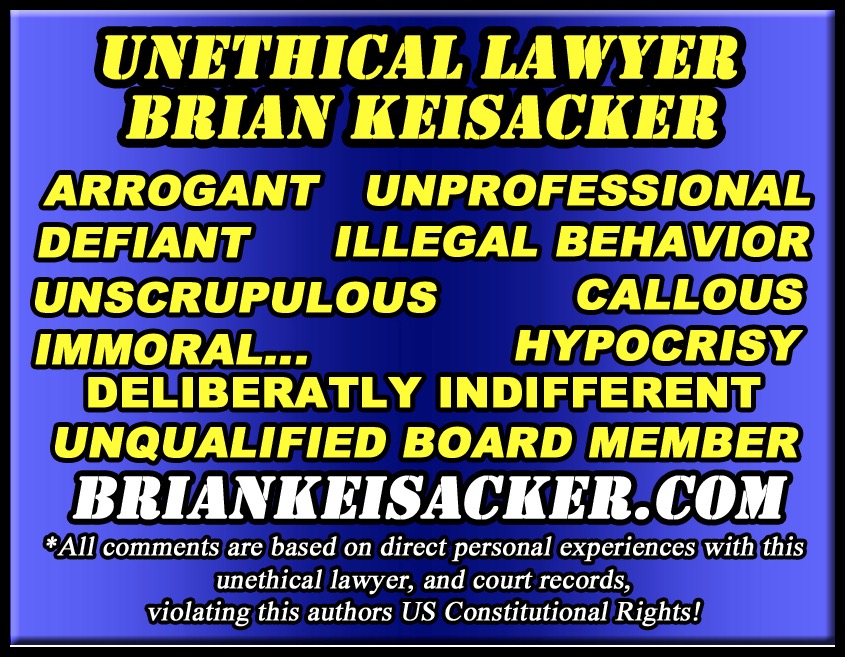
BRIAN KEISACKER: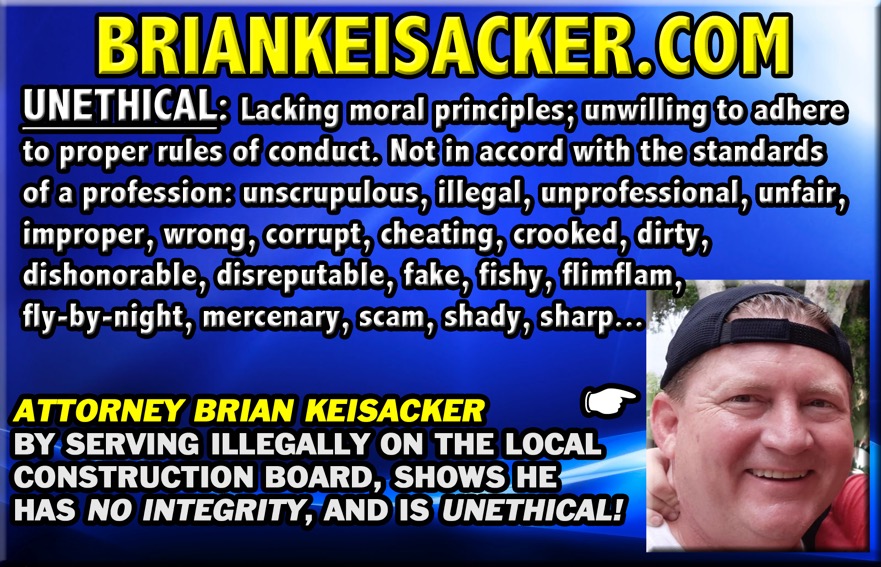
BRIAN KEISACKER: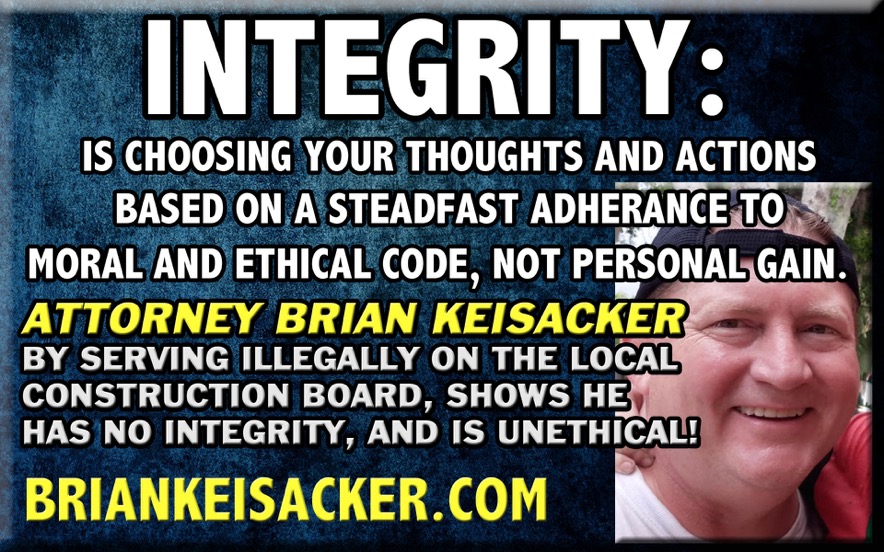
BRIAN KEISACKER: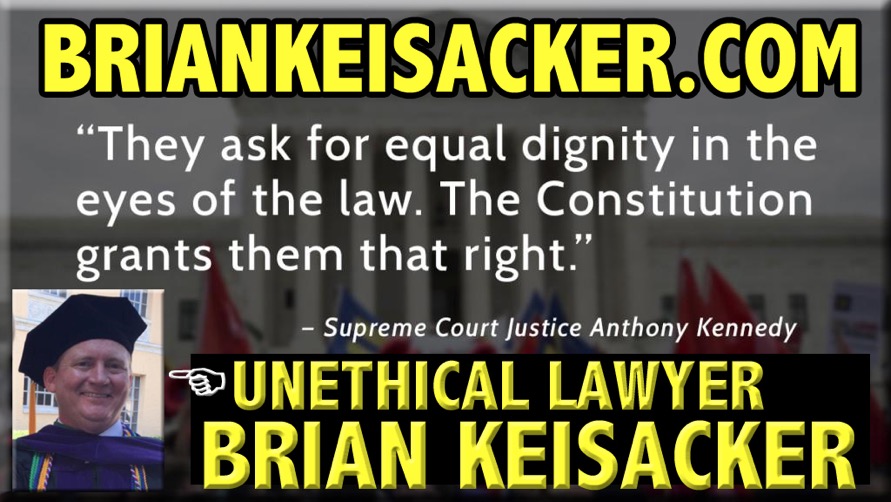
BRIAN KEISACKER: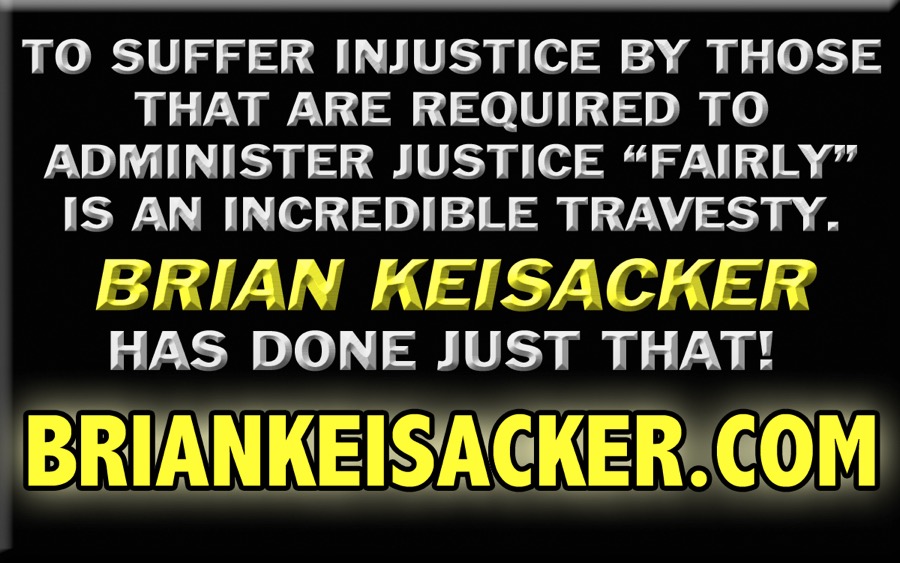
BRIAN KEISACKER: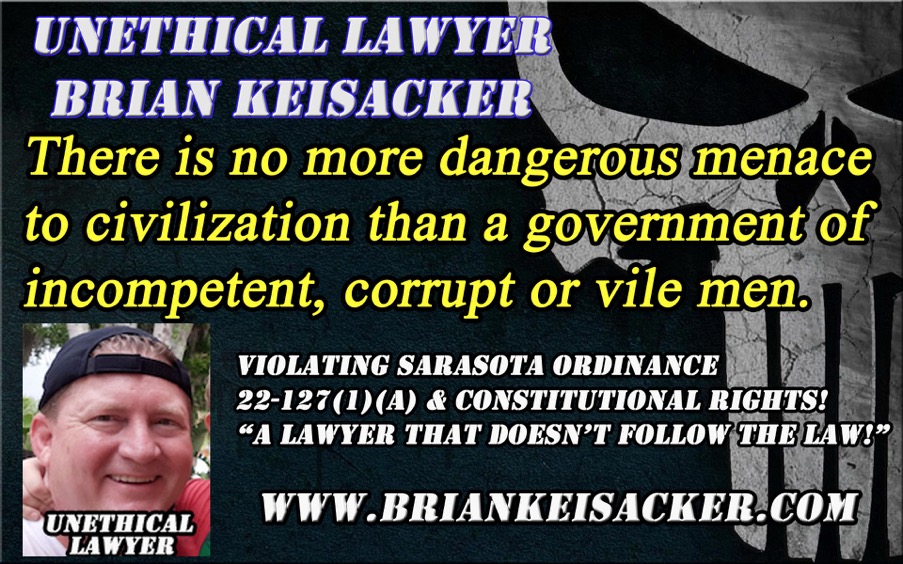
BRIAN KEISACKER: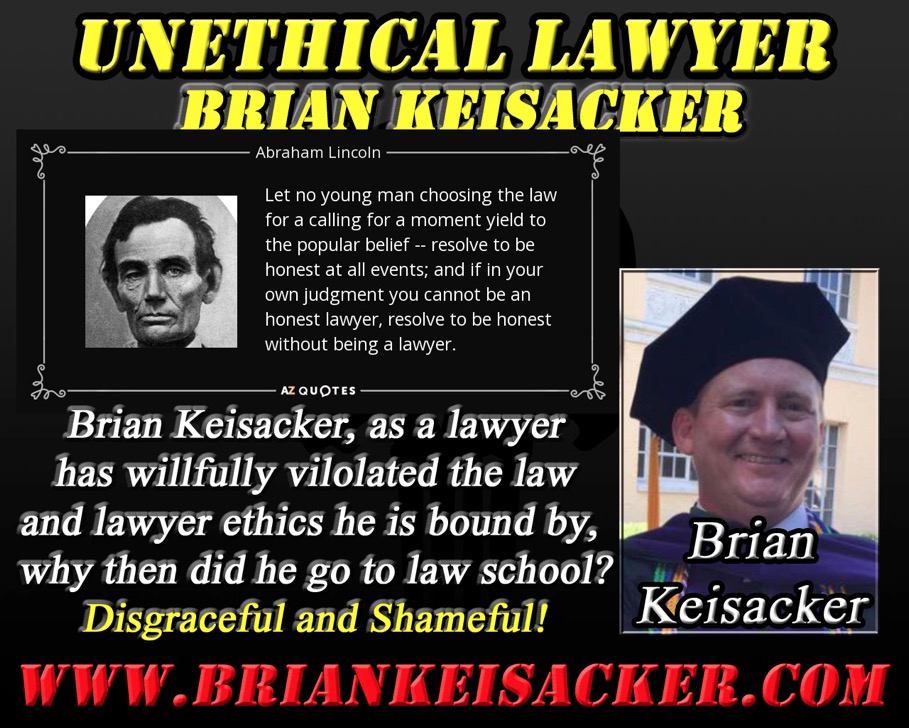
BRIAN KEISACKER: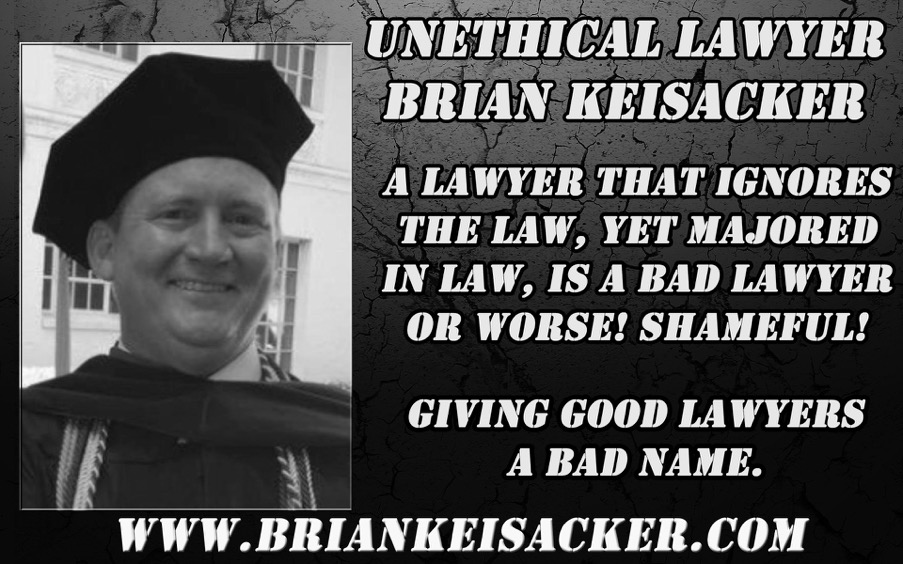
BRIAN KEISACKER: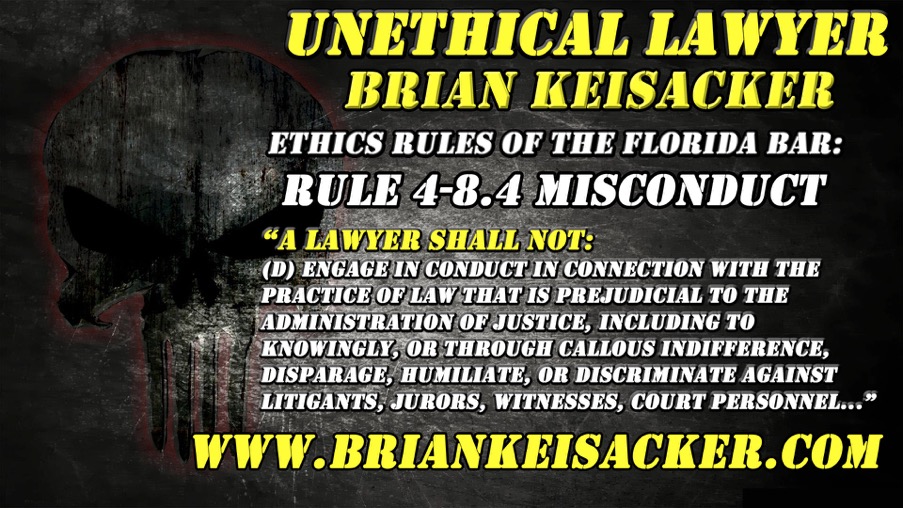
BRIAN KEISACKER: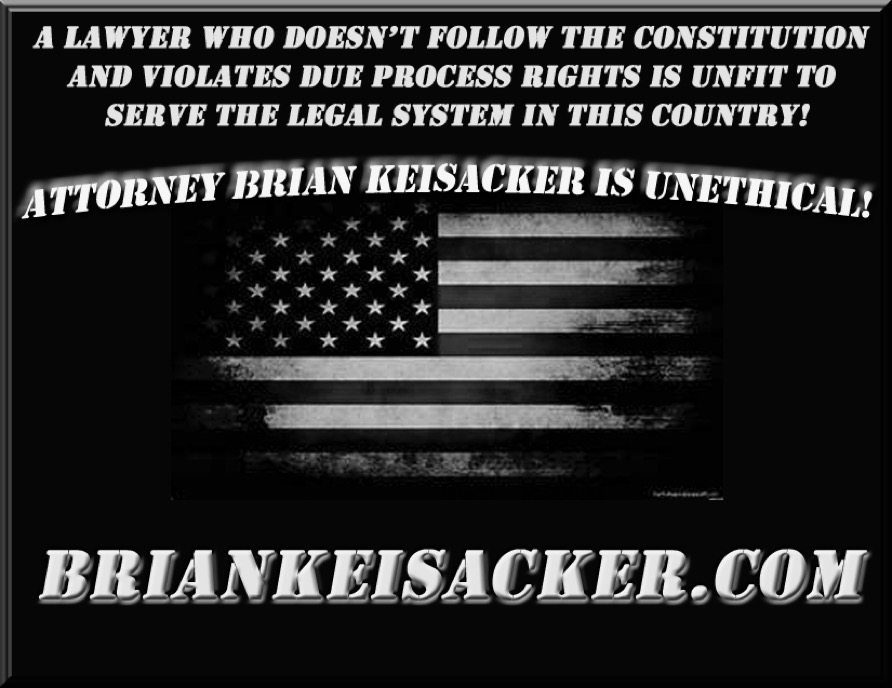
BRIAN KEISACKER: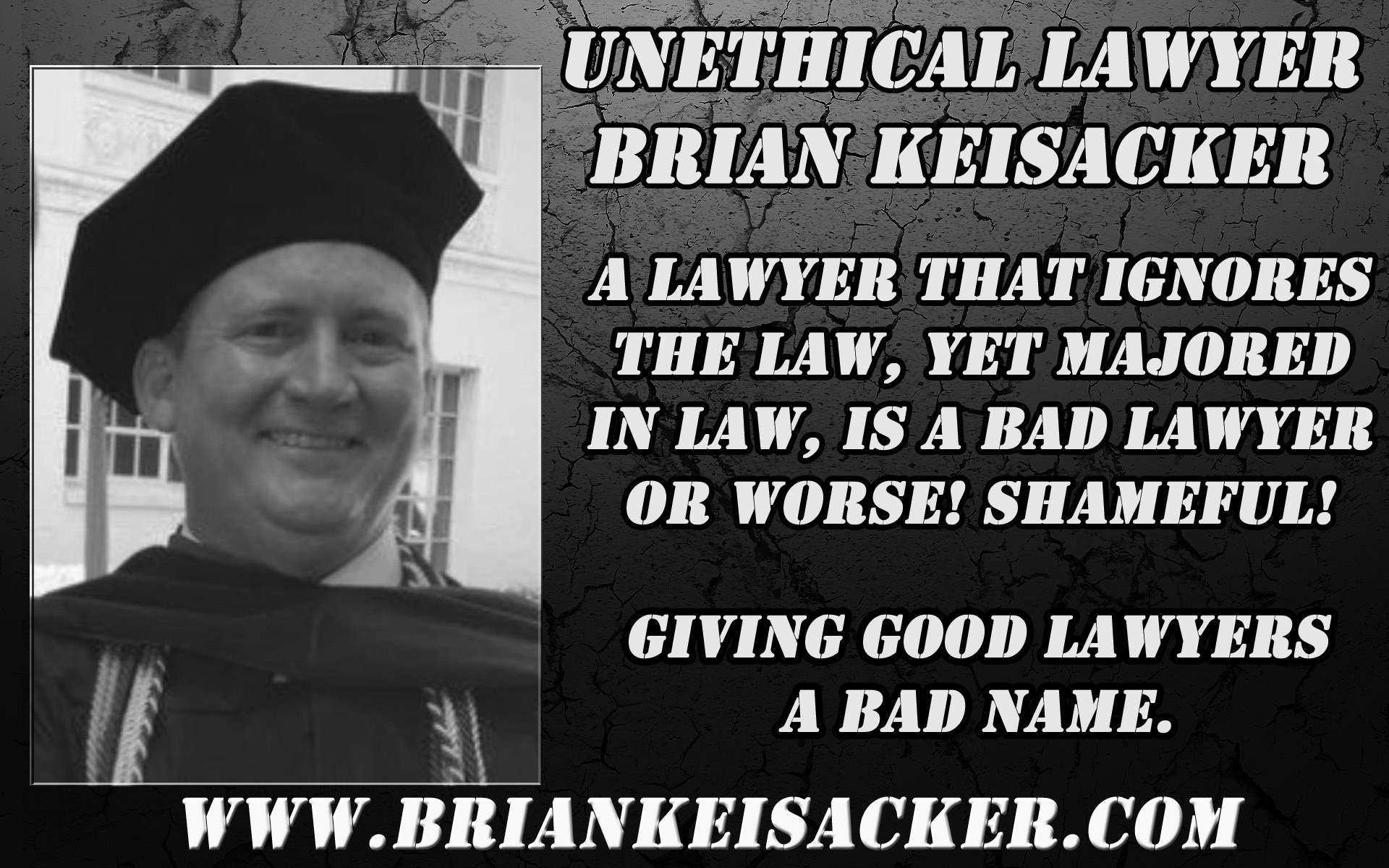
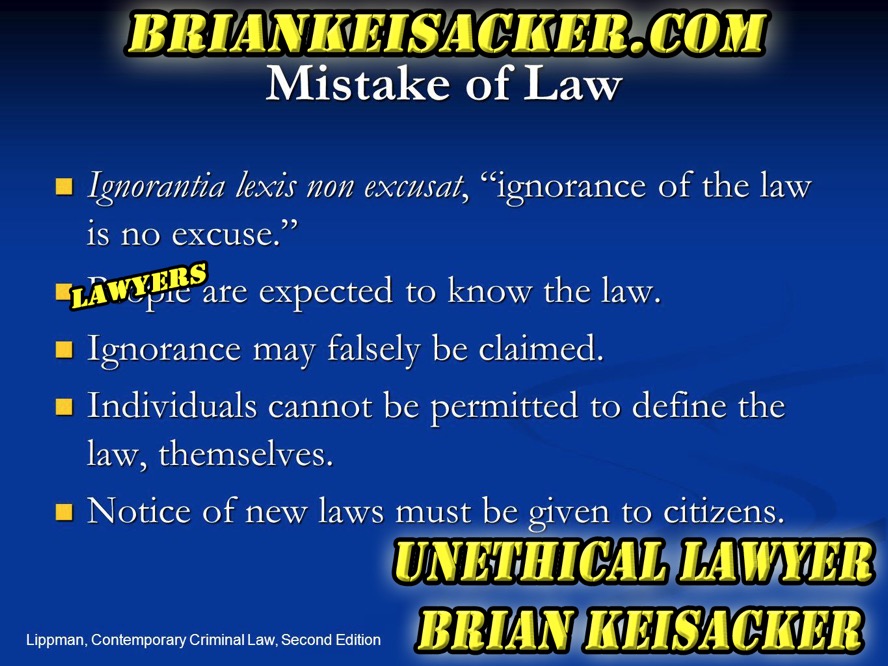
BRIAN KEISACKER: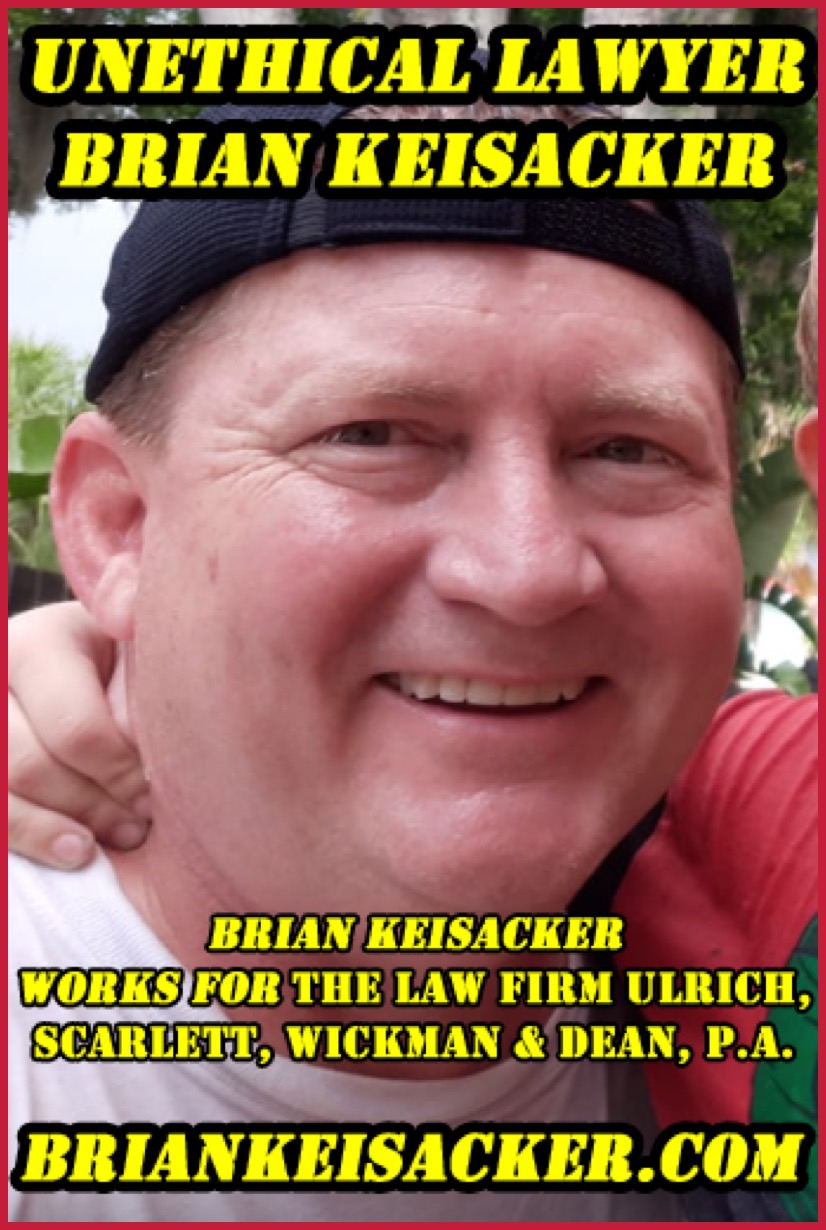
I CERTAINLY WOULD NOT RECOMMEND EVER HIRING THIS UNETHICAL LAWYER - BRIAN KEISACKER!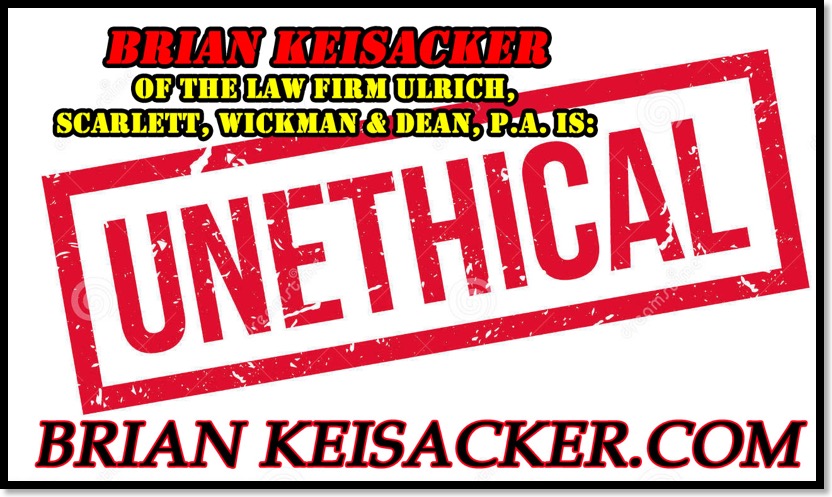
Brian Keisacker works for Ulrich, Scarlet, Wickman & Dean, P.A. in Sarasota, Florida.
One can only apply the facts and deduce that Brian Keisacker is Unethical!
Brian Keisacker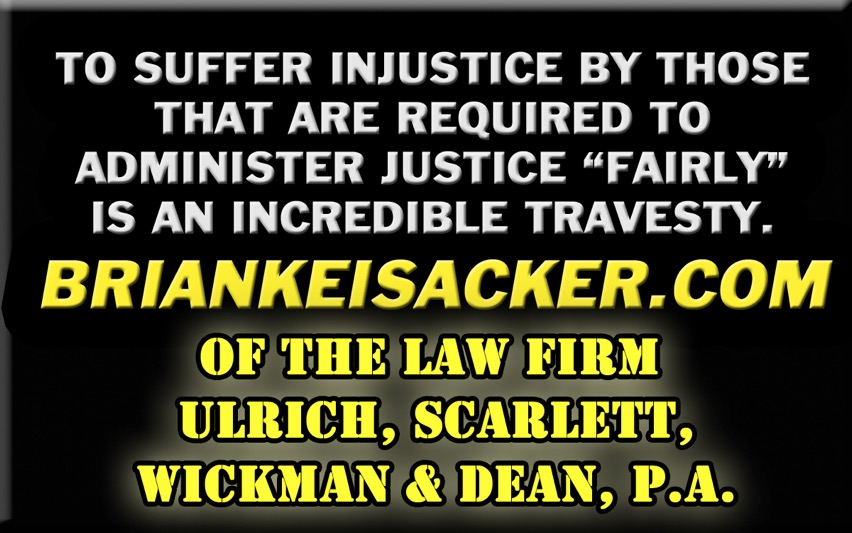
Brian Keisacker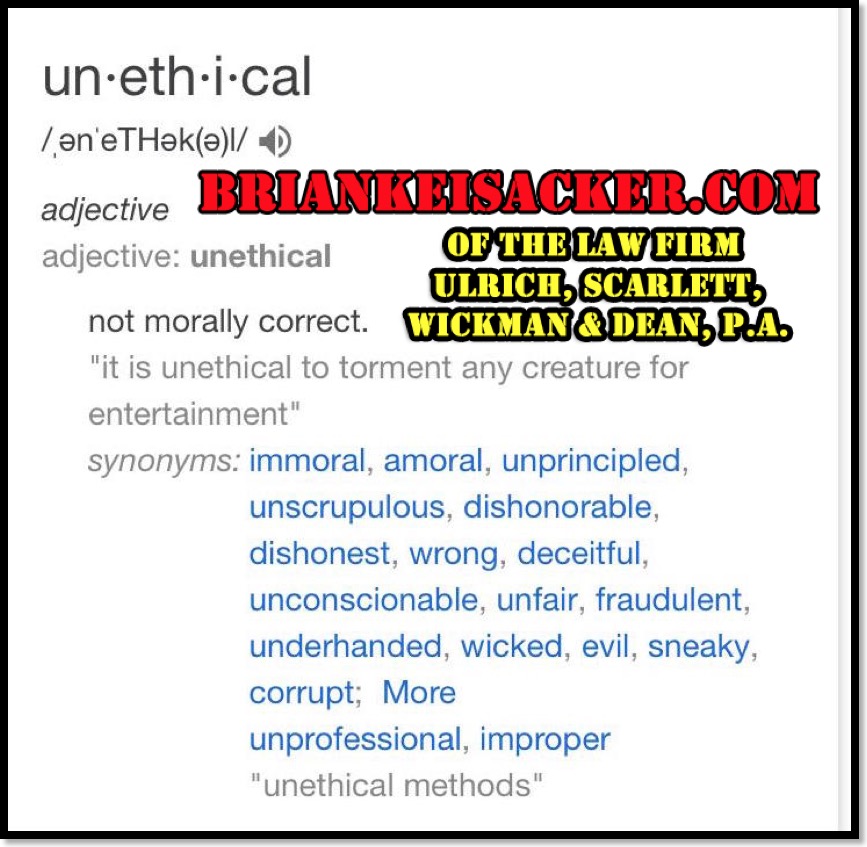
Brian Keisacker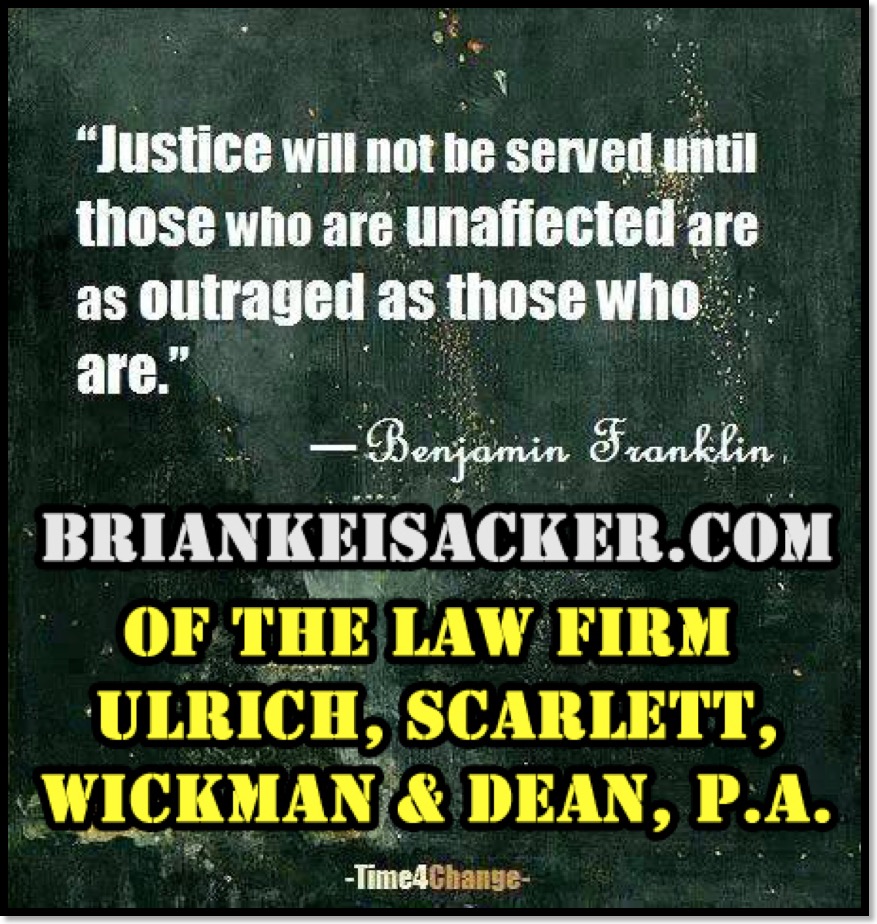
Brian Keisacker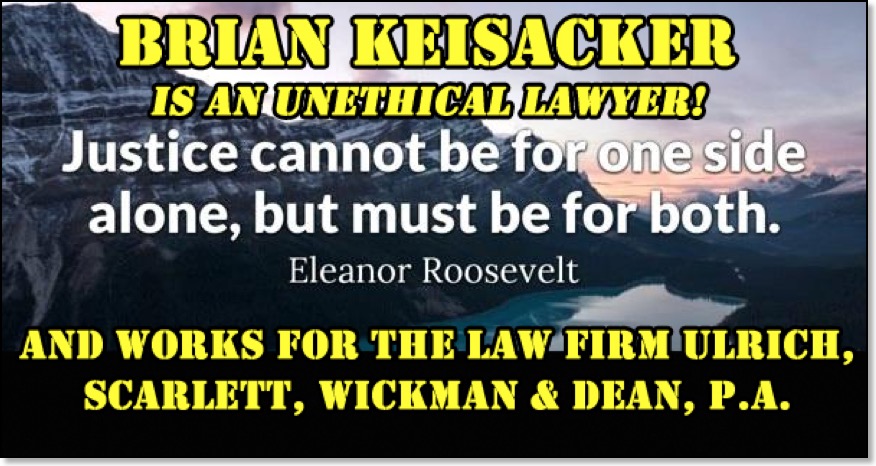
Brian Keisacker
Brian Keisacker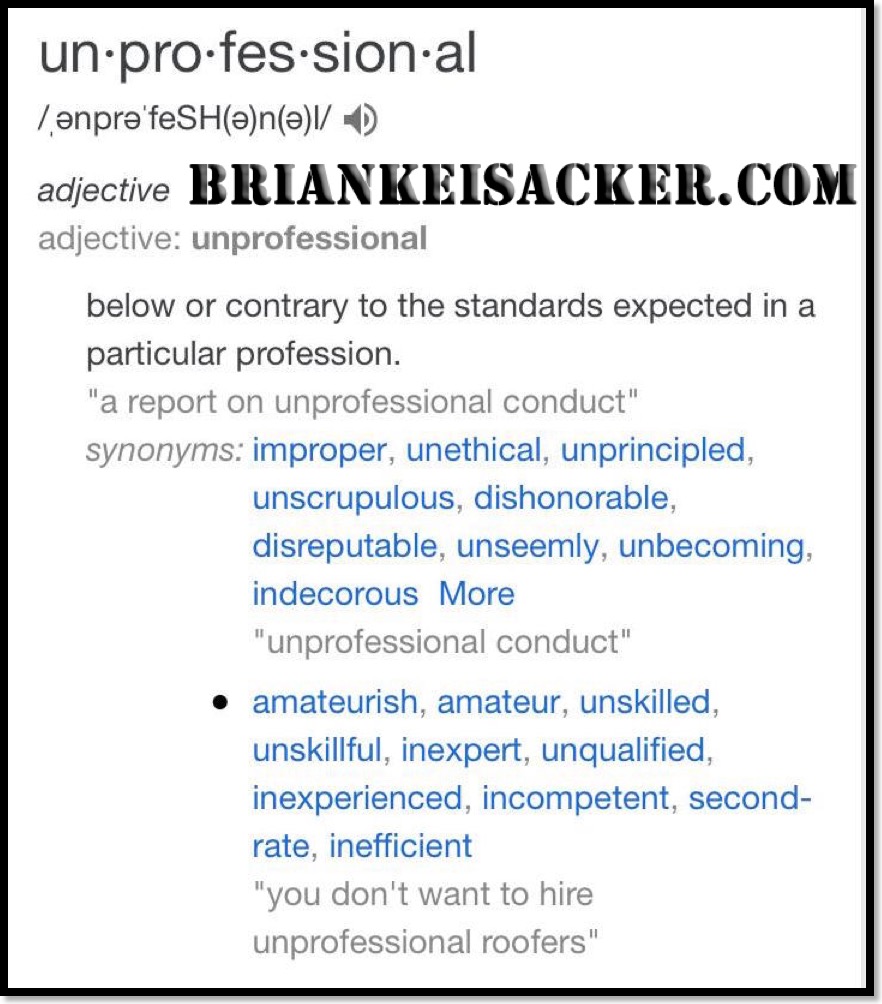
Brian Keisacker would rather be unethical, than follow the Sarasota County Ordinance 22-127(3).
From the transcript of August 15, 2019:
"…Attorney Brian Keisacker, the rules -- the rules regulating the Florida Bar state that a lawyer shall not engage in conduct that is prejudicial to the administration of justice. That rule is under the ethics Chapter 4, which is 4-8.4(d) as in David. I hereby request that you recuse yourself from this hearing and this board."
"…I believe that you're violating the rules regulating the Florida Bar and I believe that it's unethical and you should not be serving on this board. And you've known for a long time that you derive income from the construction industry and are unqualified to serve on this board."
CHAIRMAN KEISACKER: And if you feel that way, I invite you to inform the Florida Bar that you feel I'm in violation --
Arrogance and unethical behavior by Brian Keisacker!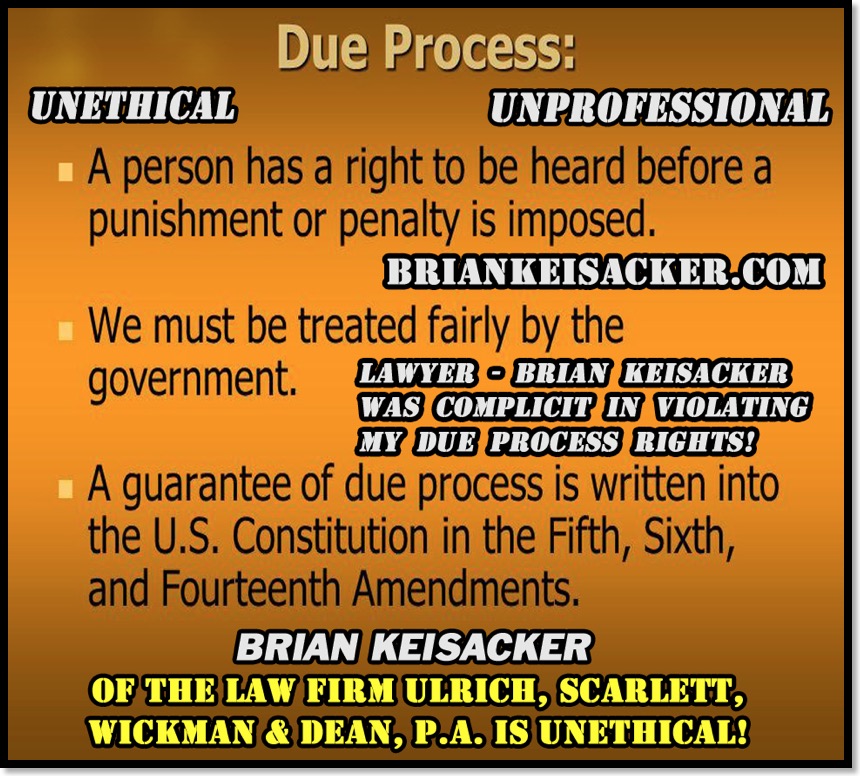
Brian Keisacker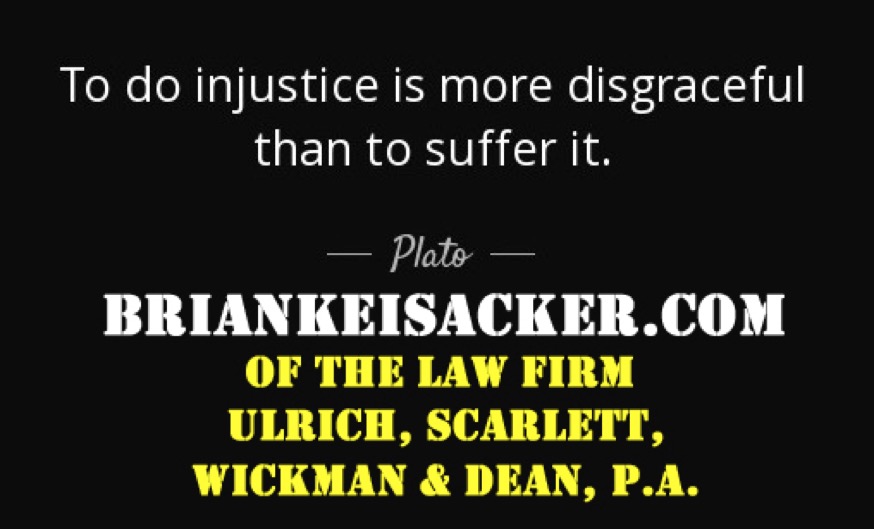
Brian Keisacker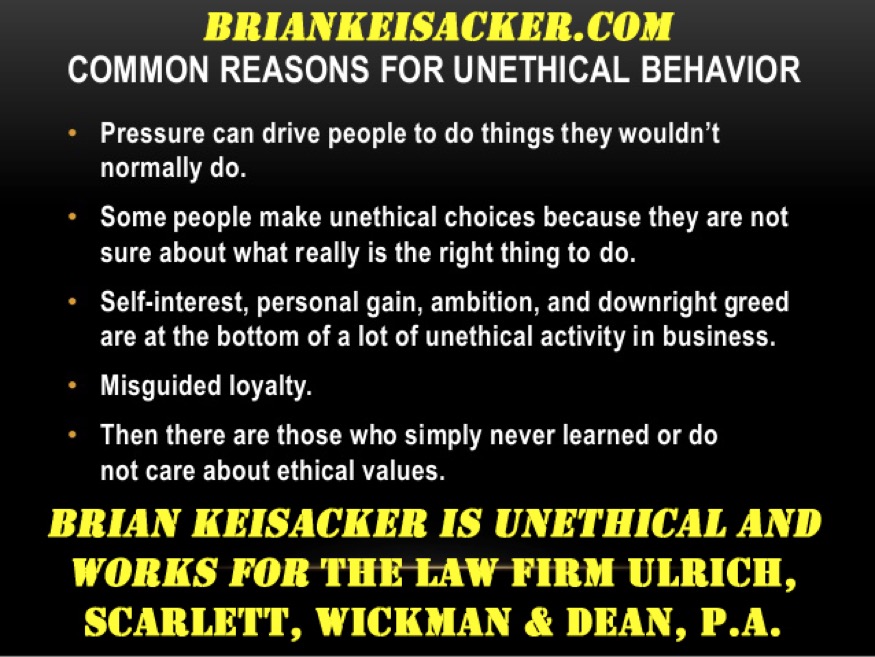
BRIAN KEISACKER
Brian Keisacker
SEE SARASOTA COUNTY ORDINANCE 22-127(3)
BRIAN KEISACKER
Brian Keisacker Sarasota, Florida.
SEE SARASOTA COUNTY ORDINANCE 22-127(3)
- (c) The term "Consumer Representatives" used in this section shall be defined as set forth in F.S. § 489.131(10).
- (3) Qualifications. Architects and Engineers are not required to be professionally registered in the State of Florida as a condition of appointment to a Board. The citizen at large member (Lawyer Brian Keisacker) shall be selected for appointment from Sarasota County resident applicants deriving no income from any source connected with the construction industry. Appointment shall be based on demonstrable training and experience acceptable to the Board of County Commissioners. PLAIN AND SIMPLE! Brian Keisacker is defiant!
- 4) Term of Appointment. Board members shall be appointed for a period of three years. The Board of County Commissioners may relieve Licensing Board members of their appointment for failure to attend a majority of the meetings each fiscal year. The appointed members of the Boards shall proceed to select a Chairman, Vice Chairman and a Secretary.
It is our beliefs from personal experiences with lawyer Brian D. Keisacker, has violated Respondent’s constitution rights where Brian D. Keisacker as chairman of the Sarasota County General Contractors Licensing and Examining Board did not accord due process guaranteed under the United States Constitution and served as a consumer representative, Brian Keisacker is in clear violation of Sarasota County Ordinance 22-127(3), where Brian Keisacker earns income from the construction industry.
Yet Brian Keisacker refuses to follow the law:
Brian Keisacker
Brian Keisacker sits on the Board as a “Citizen at large (consumer representative)," one of three such positions required by Sarasota County Code § 22-127(1)(a). Of note, "[t]he citizen at large member shall be selected for appointment from Sarasota County resident applicants deriving no income from any source connected with the construction industry." Sarasota County Code § 22-127(3) (emphasis added). See also, § 489.131(10), Florida Statutes (2019).
Brian Keisacker represents dozens of clients in matters that are directly related to the construction industry.
In a résumé submitted with Brian Keisacker’s advisory application, Keisacker states:
“Prepare and file pleadings, motions, and responses to all aspects civil litigation in areas including foreclosure, boundary disputes, construction defects…”
Since Brian Keisacker practices construction law and collects fees from construction related clients, he is currently deriving income from the construction industry, which is prohibited for individuals serving on the Board in his capacity. Brian Keisacker’s application to serve on the Board clearly and definitively indicates Brian Keisacker derives income from the construction industry, thereby defeating the intended purpose of a citizen/consumer representative.
Brian Keisacker’s specializes in construction law and advertises on their website as follows:
“Our firm provides a variety of services to contractors, subcontractors, suppliers, homeowners in connection with construction law matters, including preparation, negotiation and review of construction agreements as well as the preparation and service of notices to owner, claims of lien, contractor final affidavits and other document required by the Florida Construction Lien Law. Should litigation become necessary to enforce or defend the claim of a construction lienor, we prosecute and defend all aspects of lien foreclosure actions.”
Therefore, Brian Keisacker must not be on the Sarasota County General Contractors Licensing and Examining Board, yet Brian Keisacker is defiant and will not follow the ethical rules Brian Keisacker is supposed to follow.
In sum, since Brian Keisacker occupies a seat on the Board which forbids earning income from the construction industry, Brian Keisacker may NOT legally serve the citizens of Sarasota County on its General Contractors Licensing and Examining Board, and Brian Keisacker cannot and must not preside over matters within the jurisdiction of the Board. ALL Respondents have a right to be heard before a Board comprised of individuals who meet all of the statute and ordinance requirements for service on the Board. Brian Keisacker
BRIAN KEISACKER SHOULD NOT BE SERVING ON THE CONTRACTOR BOARD AS A CONSUMER REPRESENTATIVE WHEN HE EARNS INCOME FROM THE CONSTRUCTION INDUSRTY. THIS IS IMMORAL AND UNETHICAL.
